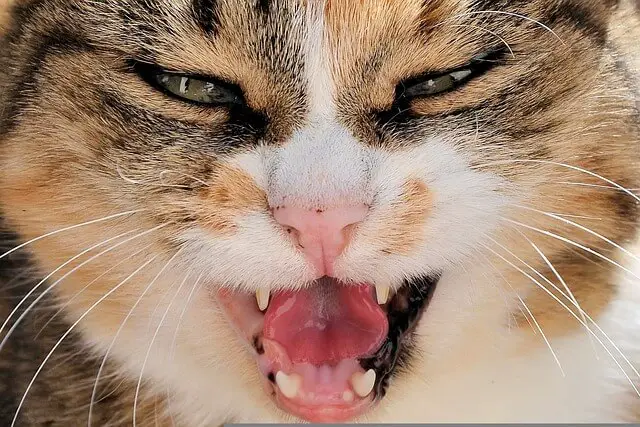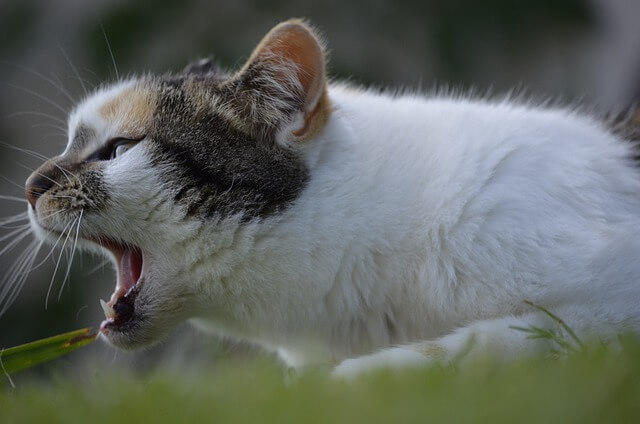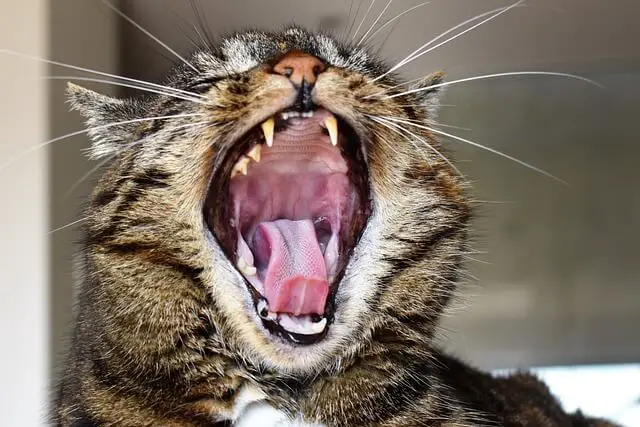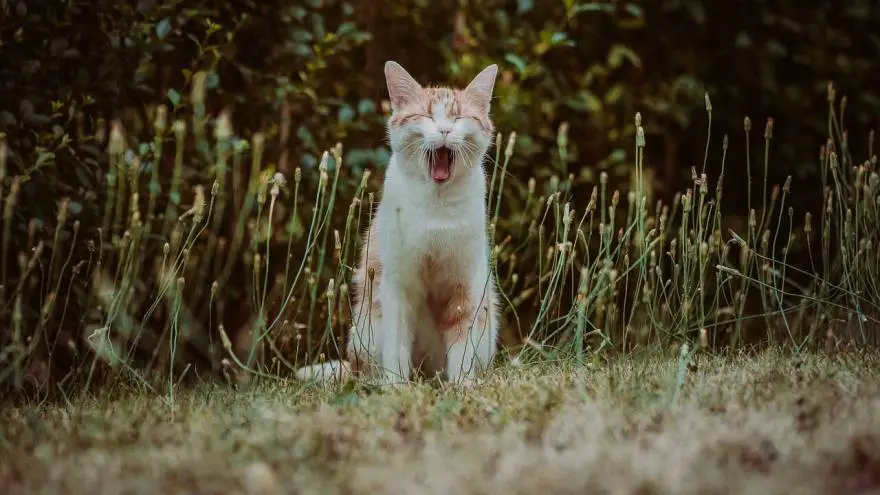Gingivitis In Cats - Causes, Diagnosis & Prevention
23.09.2022.
Gingivitis is one of the most common oral diseases in cats. Many cats will develop some degree of this health issue, and to help your cat, you must understand what gingivitis is and the most common signs.
Gingivitis in cats ranges from mild to severe cases, and although this may come as a shock to you – it could be life-threatening. In cooperation with our vet, we bring you all the necessary information you will have to know about gingivitis in cats, what the best treatment is and if there is any way to prevent this issue.
What is gingivitis in cats?
Gingivitis is most commonly known as an inflammation of the gums, particularly the gingiva (gum that surrounds the teeth). This disease can generally happen to any cat breed and age, and most cats will experience mild gingivitis. Senior cats are most in danger of developing this issue.
Gingivitis will happen when the plaque around the teeth builds up, and the gums will naturally respond with swelling and, in some cases, bleeding. If this problem is left untreated, it will only worsen and become more severe. Cats with a severe case of gingivitis will have problems drinking and eating, and teeth cleaning will be required to stop this issue from further development.

RELATED: Stomatitis in Cats: Causes, Symptoms & Treatment
What causes gingivitis in cats?
As we said earlier, gingivitis occurs when plaque builds up in your cat's mouth. This is the first and most common cause of gingivitis. Some other causes can develop this health issue include
- Genetics – some cats can be predisposed to develop oral issues, including gingivitis.
- Infectious diseases – some diseases, such as feline immunodeficiency virus, feline calicivirus, etc., can cause this issue.
- Bad dental hygiene – not providing your cat with proper oral hygiene, in some cases, could lead to gingivitis.
- Maligned tooth – misaligned teeth can cause oral problems for your cat, including gingivitis.
- Fractured tooth – with an untreated fractured tooth, chances are bigger that your cat will develop this issue.
What are known symptoms and signs?
As you may think, symptoms will be connected to the cat's mouth, but don’t be surprised if you see physical and behavioral changes in your cat if she has a severe case of gingivitis.
The most common symptoms of gingivitis in cats include the following:
- Red and swollen gums
- Excessive drooling
- Unwillingness to drink
- Refusal of food
- Bad breath
- Weight loss
- Behavioral and physical changes
The first and most obvious sign that something is bothering your cat will be red and swollen gums. As a result, your cat could start drooling a bit more. When your cat's gums get swollen, you can expect your cat to refuse food and, in some cases, even water.
Refusal to eat will result in weight loss, but refusing food could also indicate other health problems and not necessarily gingivitis.

RELATED: 5 Possible Reasons Why My Cat Is Losing Hair
How to diagnose this issue?
In most cases, diagnosing gingivitis will not be hard because your cat's behavior will make you wonder if something is bothering her. Red and swollen gums could easily be seen, and if you notice that, simply call your vet, and he will diagnose gingivitis.
If your cat starts to refuse food or water, this doesn’t necessarily mean that gingivitis is bothering her since these symptoms could also relate to many different health issues. Again, your vet will set the right diagnosis.
What is the best treatment for gingivitis in cats?
Cats that are diagnosed with gingivitis will need plaque and tartar removal, which will be followed by cleaning the tissue that is located beneath the gum line. Any infected or loose tooth (teeth) should be removed to prevent this disease from developing further.
From this moment, your vet will instruct you about the regular dental care your cat should receive. Cats' teeth should be brushed regularly. In cases of severe gingivitis, your vet could prescribe your cat some antibiotics.
If your cat has an underlying health issue causing gingivitis, your vet will first need to find the main reason that caused the development of gingivitis. After he sets the right diagnosis then, he will prescribe your cat with proper treatment.

RELATED: 8 Ways To Keep Your Cat Happy & Satisfied
What is the prognosis for my cat?
If you catch gingivitis in an early stage and act accordingly, your cat will recover pretty fast. However, from this point, you will have to take better care of her oral health to prevent dental diseases in the future.
If your cat is diagnosed with a severe case of gingivitis, her treatment will last longer, but in the end, your cat will also recover if you follow your vet's instructions and provide proper care.
Is there a way to prevent this disease?
As with all diseases, gingivitis can also be prevented. You will have to provide your cat with regular dental care, including brushing her teeth. Besides brushing, you will have to find good and well-balanced food that can help against many health problems. Last but not least, you will have to take regular vets meeting, so your vet can quickly examine your cat and confirm that everything is all right with her.
World Cat Finder Team







Share